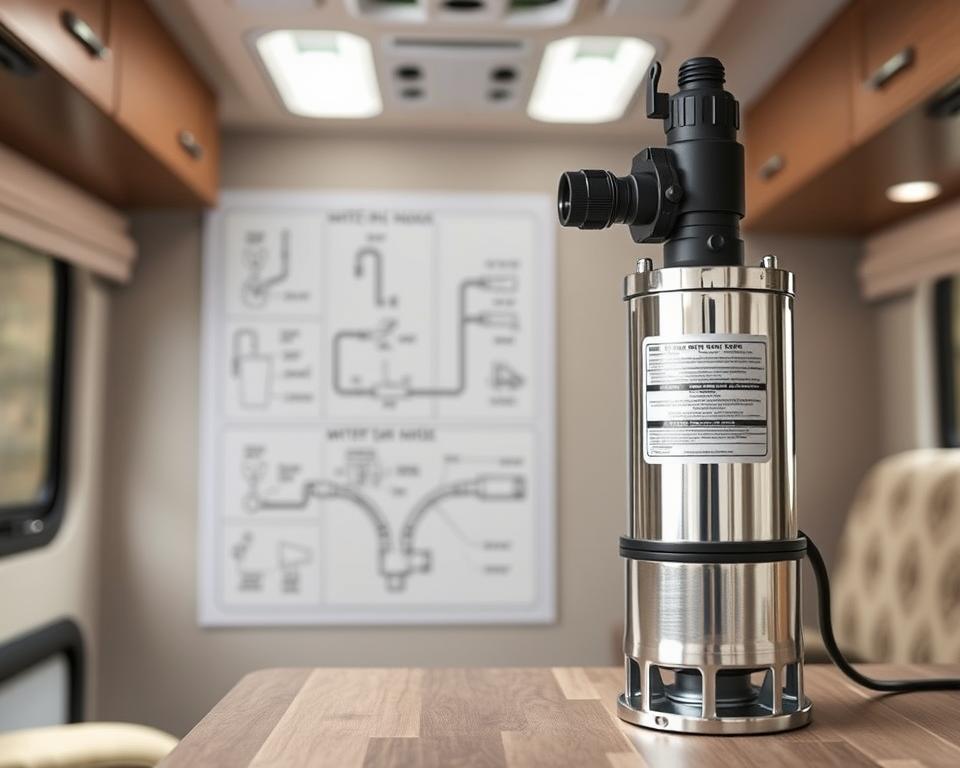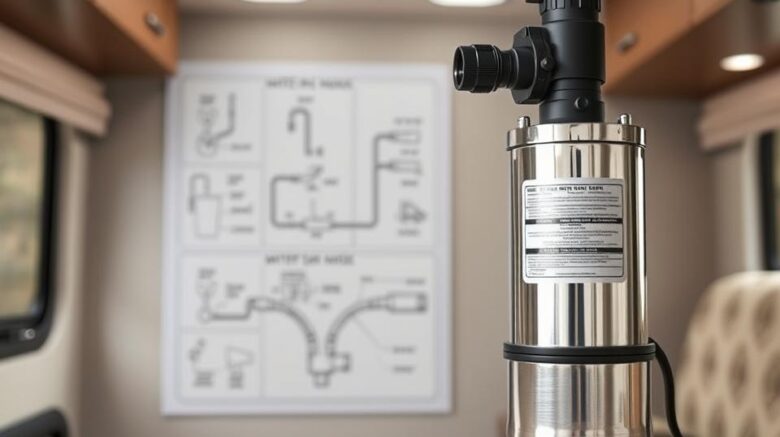Trailer Septic Tank Pumping: Complete Guide
Have you considered the results of overlooking your trailer’s septic system? If you road-trip with an RV or mobile rig, it’s crucial to comprehend the value of RV septic Tank Pumping. It secures your journeys are uninterrupted and living conditions stay sanitary while on the move. By stressing regular RV tank pumping service, this guide seeks to make you proactive in maintaining your septic system, preventing potential headaches — especially when soaking up the great outdoors.
Here, thorough instruction into finding dependable mobile septic services is provided. On top of that, we cover how to detect when your septic Tank needs urgent attention. Understanding the process for proper trailer septic Tank Pumping is explained too. Instead of responding to issues as they pop up, allow this guide to arm you with critical knowledge. This sets up your RV experiences remain worry-free!
The Significance of Routine RV Septic Tank Pumping
Regular upkeep of your trailer’s septic Tank is essential for its wastewater system’s efficiency. Putting off this can lead to clogs and backups, ruining your fun and damaging the environment. Sewage leaks from an over-filled Tank can contaminate the area, presenting major problems.
Choosing professional Pumping services like All in Sanitation is prudent for RV owners. This action prevents issues and extends your system’s functionality and longevity. On-schedule Pump-outs translate to a fresher, safer environment in RV parks and campgrounds.
Understanding Your Trailer’s Septic System
A trailer septic system features three primary elements: the black water Tank, grey water Tank, and fresh water Tank. For RV owners, it’s critical to know these parts. They are key in waste management. The black water Tank captures toilet sewage, whereas the grey water Tank retains water from sinks and showers.
Each Tank has a unique role in ensuring the rig clean and operational. Checking the levels in the black water and grey water Tanks is vital. It wards off overflows, bad smells, and damage to the septic system.
For quick reference, below is a table that highlights differences between the black water and grey water Tanks:
| Feature | Black Water Tank | Grey Water Tank |
|---|---|---|
| Purpose | Keeps sewage waste | Collects wastewater from sinks and showers |
| Maintenance Frequency | Requires frequent Pumping | Needs infrequent emptying |
| Potential Issues | Odors, blockages from solids | Risk of grease buildup |
| Typical Size | Generally bigger than grey water Tank | Smaller than black water Tank typically |
Grasping your RV’s septic system is the bedrock for maintenance. It guarantees smooth travel experiences. Paying attention to both Tanks translates to trips with minimal septic concerns.

Signs Your Septic Tank Needs Pumping
It’s important to spot when your septic Tank needs Pumping to protect your system sound. Identifying issues early can help avoid major repairs and environmental harm. Key signs that require attention include:
- Slow draining sinks, which may suggest a full Tank or clog.
- Gurgling toilets, hinting at blocked pipes or a failing septic system.
- Foul odors around your camper, an early warning of rising sewage.
- Pooling water near the drain field, showing that your Tank may be overwhelmed.
- Sewage backups in your toilets or drains, a clear sign urgent action is needed.
Becoming aware of these signs empowers RV owners to take quick action, avoiding grave issues. Monitoring your system and responding to these indicators can prolong your septic system’s lifespan. This approach leads to a more enjoyable trailer experience.
Variables Impacting Pumping Frequency
A septic Tank’s capacity greatly influences how often it demands Pumping. Larger Tanks need more spread-out service because they hold more waste, in contrast smaller Tanks require more frequent Pumping.
The rig count using the septic system also affects Pumping frequency. With more RVs, the system experiences heavier strain, necessitating accelerated Pumping. Notably through peak seasons, altering the schedule is key to avoid problems.
Here is a table that summarizes recommended Pumping intervals based on typical scenarios:
| Septic Tank Size | Number of RVs | Recommended Pumping Frequency |
|---|---|---|
| 500 gallons | 1-2 RVs | About every 2-3 years |
| 1000 gallons | 2-4 RVs | Every 3-5 years |
| 1500 gallons | 4+ RVs | Every 1-2 years |
Correctly choosing your septic Tank’s Pumping frequency optimizes its operation. It also lengthens its life and performance. This choice is critical for maintaining system health.
Finding a Reputable Septic Pumping Service
Choosing a reliable septic Pumping service is vital for your RV’s septic system health. It ensures quick and effective Pumping, preventing pricey future repairs. When evaluating a septic service provider, consider these primary aspects:
- Experience: Look for companies with a proven track record. Their hands-on know-how with various septic systems, especially those for RVs, is paramount.
- Customer Reviews: Check online reviews and testimonials. Positive feedback and strong ratings are indicators of a dependable provider.
- Response Time: Fast response times reflect a company’s commitment to their customers and ability to meet their needs efficiently.
- Knowledge of Systems: Exceptional knowledge of RV septic systems sets apart some services. Providers like All in Sanitation grasp these systems well, enabling bespoke service.
Give weight to these considerations to secure the most appropriate service for your septic requirements. A trustworthy septic Pumping service enhances your system’s life and performance, delivering carefree travel adventures.
Trailer Septic Tank Pumping: The Process Explained
Motorhome septic Tank Pumping includes essential steps for efficiency and safety. It’s vital for RV owners to understand this process before service appointments.
A technician with a trailer-mounted Pump arrives first, tailored to mobile systems. This technology allows effective waste removal while defending the environment. They hook up the Pump to the trailer’s system with a hose reaching the Tank.
The Pump then extracts the waste out of the Tank. This action is essential to maintain the septic system healthy and avoid overflow. After emptying, the technician inspects the Tank for damage or wear, verifying proper function.
Following the Pump-out, waste disposal is paramount. The hauled waste is brought to treatment facilities for safe processing. This step reduces environmental harm.
The process gains from the trailer-mounted Pump’s speed. Scheduled service reduces time and cost, maintaining the septic system in excellent condition.
Rapid-Response Septic Pumping Services
Sudden issues with your septic system can demand immediate intervention. For RV enthusiasts, knowing when to seek emergency septic Pumping is crucial to avert further damage and exorbitant costs. Situations demanding urgent septic Tank Pumping include backups, unpleasant smells, and sewage leaks. Quickly addressing these issues often requires septic Tank Pump and haul services to effectively eliminate waste and return to system functionality.
Providers like All in Sanitation provide 24/7 emergency septic Pumping, ensuring help is immediately available in a pinch. Acting fast with these services markedly boosts your septic system’s lifespan and performance. Having a trusted septic service on speed dial can mitigate expenses and stress in emergencies, delivering uninterrupted enjoyment of RV adventures.
Tips for Caring for Your Trailer Septic System
Keeping your camper’s septic system in peak shape is critical. Proper maintenance strategies can save you from pricey problems later. First, do regular checks for damage, leaks, or strange smells for RV septic Tank care.
Sensible waste disposal is fundamental for a healthy system. Never flush items that won’t break down, and choose septic-friendly products. It’s critical that everyone is aware of how their actions impact the septic system. This makes certain it is kept functional and efficient.
- Perform periodic checks for leaks and unusual odors.
- Keep contact with your septic service provider for on-schedule maintenance.
- Utilize septic-safe toilet paper and cleaning supplies.
- Refrain from pouring chemicals down the drain that could disrupt the balance of bacteria in the Tank.
- Plan for routine professional inspections to spot potential issues early.
Following these steps assists RV owners prolong their RV septic systems’ life and performance.
Common Issues with RV Septic Systems
Mobile septic systems often face challenges that plague RV owners. Handle these issues early to sidestep bigger problems later. Clogs in septic Tanks are common, mainly due to not disposing of waste properly. To avoid clogs, stick with RV-safe toilet paper and conduct regular maintenance.
Another big issue is odor control. Bad smells can signal backups or leaks, demanding immediate action. To reduce odors, ensure the system is well-ventilated and the septic Tank is emptied on schedule.
Leaks can appear from wear or incorrect installations. Fast identification of leaks aids avoiding environmental damage and maintains the system working. Routine inspections are important to spot these issues early.
To avoid common issues, use preventative strategies like routine service and proper waste disposal. Prepared and proactive RV owners can savor their travels stress-free and with peace of mind.
In Closing
Being savvy about trailer septic Tank Pumping is essential for RV and camper owners. Regular maintenance and noticing trouble signs in your septic system can enhance your RVing experience dramatically. Managing your RV’s septic system well ensures both safety and comfort during your outdoor adventures.
Selecting a trustworthy service for your camper’s septic Tank Pumping is critical. Working with experts like All in Sanitation guarantees your mobile waste management is first-rate. This approach is not just eco-friendly, but it also enhances the camping experience, making it more enjoyable and sustainable.
Actively maintaining your septic system cuts emergencies, boosting your nature stays. Thorough care and understanding empower memorable trips for the best reasons.
